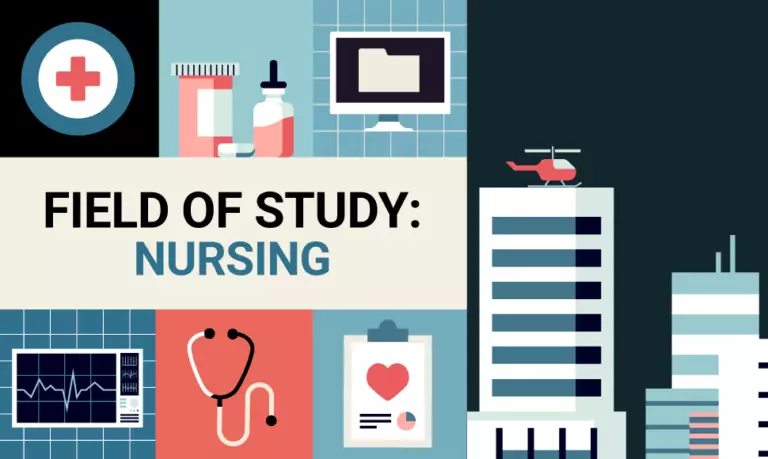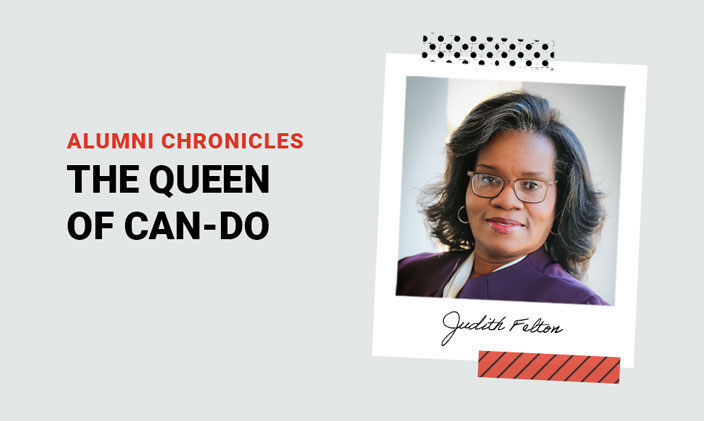Age is just a number
As a 5-year-old, Theresa Horton discovered she was a natural-born nurturer. Every time she took her mom another ice compress, she knew.
Her mom, who suffered from debilitating migraines, was often so sensitive to light and sound that all she could do was lay down in a dark room.
“I cried with her because she was crying, and I knew then that I wanted to take care of people. That was me trying to fix her,” Horton says. That was also her demonstrating empathy — a quality that University of Phoenix nursing programs strongly emphasize.
Meet other Phoenixes like Theresa.
Make connections, build relationships and be part of a growing community.
Of course, Horton couldn’t have known that University of Phoenix ultimately would be her path — and she definitely couldn’t have predicted that she would earn her bachelor’s degree with a 4.0 GPA as a 54-year-old while working two jobs and helping to raise her grandchild.
Sometimes, life goes exactly where you wanted — it just takes a little while to get there. That’s Horton’s story. Maybe it’s yours too.
“I am not too old”
Now 55, Horton is sporting her 4.0 on applications to family nurse practitioner (FNP) programs. (UOPX does not offer its FNP program in Horton’s home state of North Carolina; if it did, she says, she would have applied.) Horton also works out, stays healthy and feels young. Age is just a number to her.
She has lived this out to her grandkids, as well. Especially her youngest and possibly most precocious one.
“When she was 6, Giselle said, ‘Mimi, why are you going to school? You’re too old,’” Horton says. “I said, ‘I am not too old. I am teaching you that we can learn no matter what age we are.’”
And learn she has, both in the classroom of college and in the classroom of life.
In 2007, Horton became an LPN (licensed practical nurse) through a community college. It wasn’t at the level of what she wanted to do, but the waitlists for registered nurse (RN) programs were long at that time. She carried a professional presence and knowledge into home health settings, long-term care facilities and doctor’s offices. Although she wanted to further her education, she was 39, divorced and raising two kids. It seemed like a project for someday.
Finally, in 2014, someday came. Horton decided to go back to school. She faced obstacles that nearly halted her plans, including losing her grandmother — also a nurse and her inspiration. Horton also was in a rear-end collision, which forced a break in her program due to serious headaches from a concussion and memory loss. She just wanted to quit, but her grandmother’s voice kept her going.
She resumed classes, finished her initial nursing education (at another school) and received her RN license. She then began working in a Level I trauma hospital, where she gained experience in orthopedic trauma, post-surgical recovery, women’s health and pediatric nursing.
Back to the books
Looking back, it was grueling. In 2018, she remembers being online, doing schoolwork the day before her father’s funeral. Months later, during her mom’s surgery to remove lung cancer, she sat in the waiting room and finished homework.
She put her head down and got it done.

By 2021, she was working as a registered nurse when she got the itch to go back to school to get her Bachelor of Science in Nursing. She did what she does best: She started researching. “I looked at reviews. University of Phoenix had some amazing reviews,” she says, adding that her friend, a UOPX alum, told her about what a quality program it was.
Ultimately, she knew that UOPX’s RN to BSN degree was the right fit. On one hand, it seemed like the right time. Her kids were grown and gone, and with University of Phoenix, her previous college credits transferred.
On the other hand, she began University of Phoenix’s online RN to BSN program literally within one day of being promoted to clinical manager with Bayada Home Health Care. Working one job with Atrium Health and another with Bayada, she says she thought, I must be crazy! “I was working full time, 8 a.m. to 5 p.m.,” she says. “I dedicated any time that I had to school. It got rough.”
Find out if your employer is one of the more than 1,500 organizations University of Phoenix works with to offer education benefits.
One of her colleagues from that season, Kimbly Sutton, says she sees innate leadership in Horton. “If you did not know your stuff as a nurse, she was the go-to person,” Sutton says. “She’s the type of person who [will] influence you to be on your A game. If something is not right, she won’t stop until it’s corrected. She both educates and advocates for her nurses and her patients.”
“With new levels, there are new devils”
Now, as Horton looks toward starting school in January 2024 to pursue a master’s degree in a family nurse practitioner program, her ultimate goal is to continue to help others learn. She is specifically passionate about providing care for individuals from underserved communities — building relationships in a family medicine office that will allow her to work with pediatric through geriatric populations.
“I see the disparities within [historically marginalized communities], both in terms of access to care and in knowledge about their health. It’s a two-part blow: affordability and understanding,” she says. “My main goal is to close that gap and help them understand their disease processes and how they can be in control of their health.”
For now, she continues to work as a clinical manager and in direct patient care, helping to educate patients about disease management in order to prevent re-hospitalization. “We talk about meds, signs and symptoms — it’s a lot of education,” she says.
Education.
The thing that makes her heart beat.
Barring unforeseen obstacles, Horton will be 57 or 58 years old when she finishes her program and receives her FNP certification. At almost 60, she’ll have student loans to pay off. She also took a peek at the required classes — advanced pharmacology, advanced pathophysiology, advanced economics, etc. — and she has nerves about going back to school, again.
“With new levels, there are new devils,” she says.
So, she did what she’s always done. She researched.
“I bought an advanced pathophysiology book and blindly took a test at the end of a chapter. I got eight out of 10 right without reading the chapter,” she says.
“I’m ready.”
For her, it’s time to begin her dream career. Because, for her, age is just a number. And she’s just getting started.

ABOUT THE AUTHOR
A journalist-turned-marketer, Laurie Davies has been writing since her high school advanced composition teacher told her she broke too many rules. She has worked with University of Phoenix since 2017, and currently splits her time between blogging and serving as lead writer on the University’s Academic Annual Report. Previously, she has written marketing content for MADD, Kaiser Permanente, Massage Envy, UPS, and other national brands. She lives in the Phoenix area with her husband and son, who is the best story she’s ever written.
want to read more like this?
Judith Felton Hasn’t Met a Problem She Didn’t Want to Solve
Alumni Chronicles
March 08, 2023 • 7 minutes
UOPX Alumna Laura McGinn Invests in Herself and Surpasses Her Goals
Alumni Chronicles
February 23, 2024 • 6 minutes




